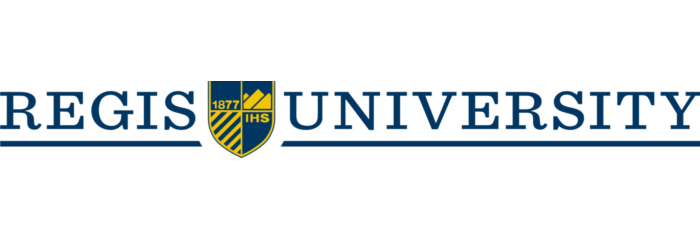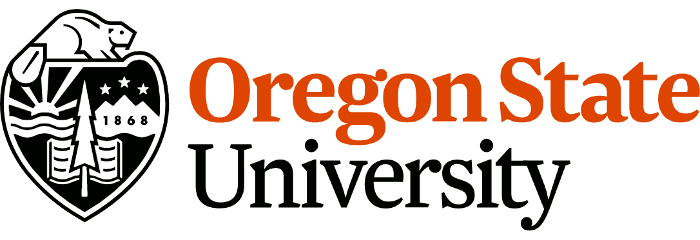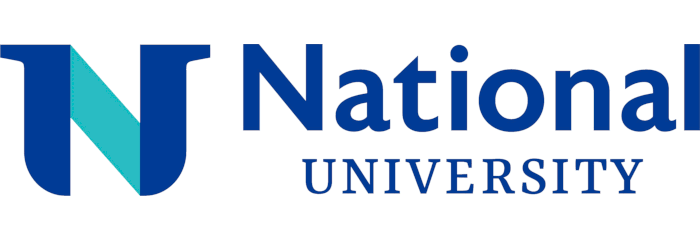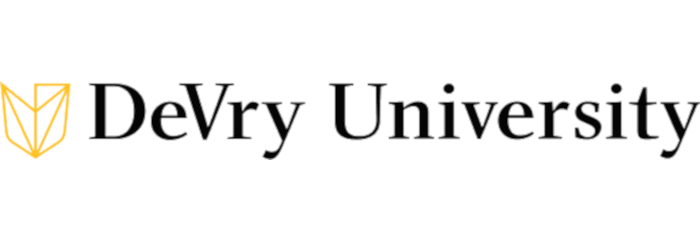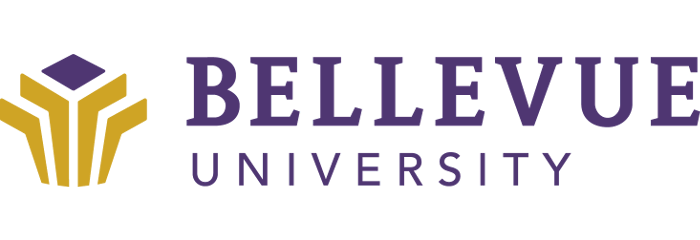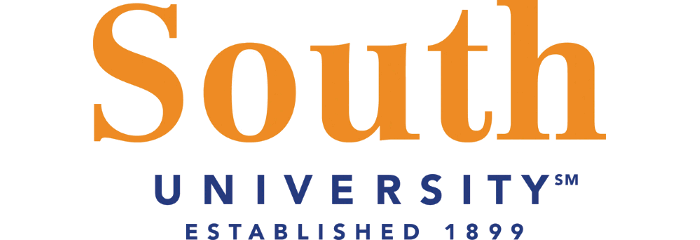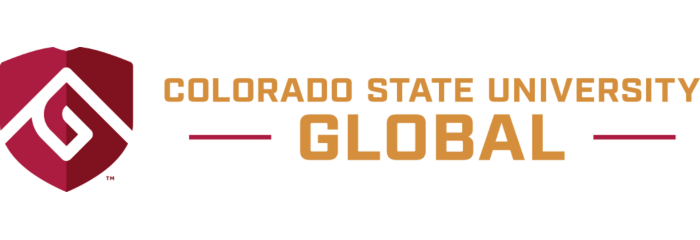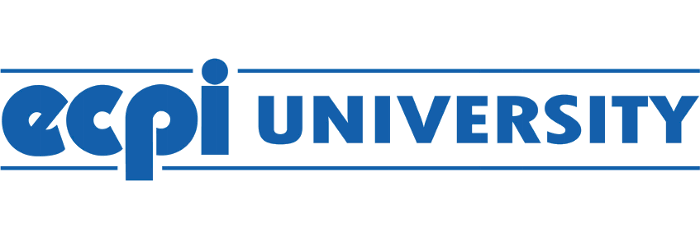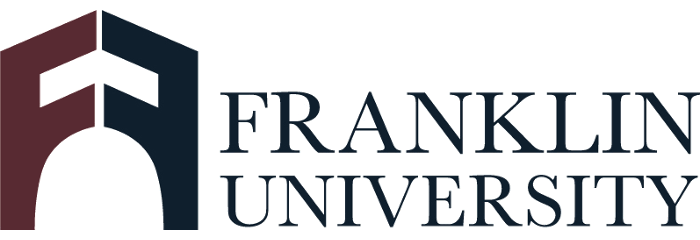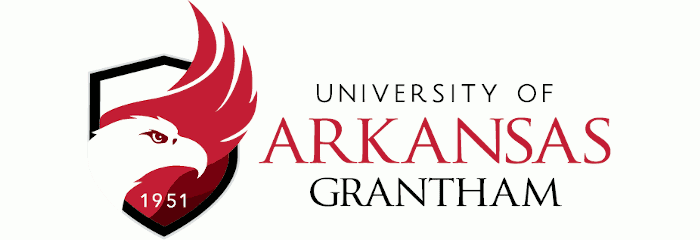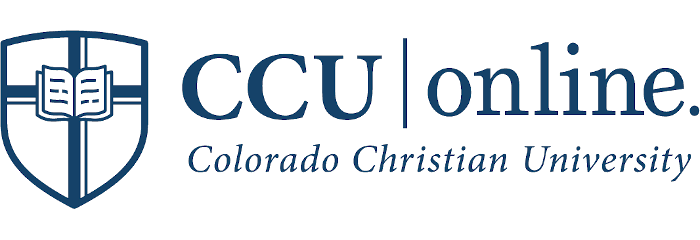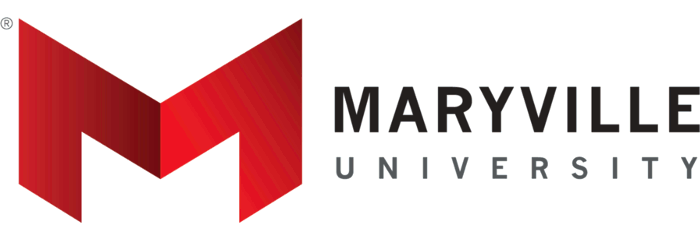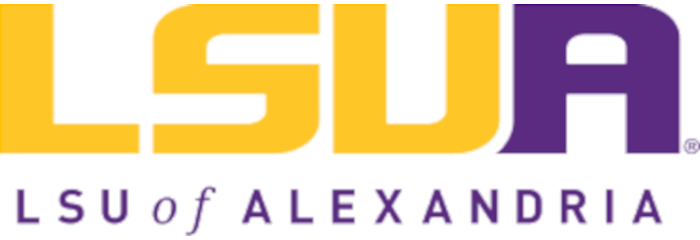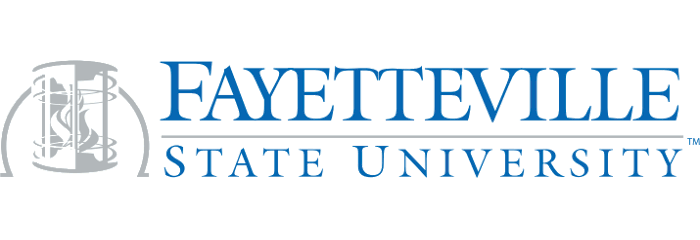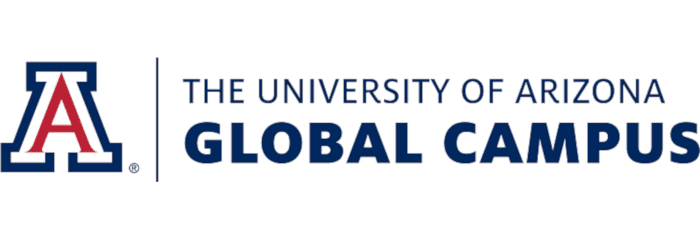2025 Best Online Computer Science Degree Programs
As part of an online computer science degree, you will learn about algorithms, software engineering, data structures, and cybersecurity. These online bachelor's programs prepare you for roles such as software developer, systems analyst, and more.
Key Takeaways:
- The University of Advancing Technology leads our list with the best computer science bachelor degree online, with a median graduate salary of $107,643.
- Southern New Hampshire University Online has over 135,000 students studying online, making it the most popular choice on our list for a computer science degree online.
- Even though Baker College is ranked #29 overall, it has the #1 best student-to-faculty ratio (8:1), fostering closer connections between students and instructors.
Our ranking methodology focuses on alumni salaries to evaluate the programs with the best long-term financial value. Secondly, we highlight the most popular online schools with computer science online degree programs to showcase the choices made by students like you.
2025 Best Online Computer Science Degree Programs
#1 University of Advancing Technology University of Advancing Technology University of Advancing Technology University of Advancing Technology
- Salary Score: A-
- Median Earnings: $107,643
- Online Enrollment: 467 enrolled
- Annual Tuition: $18,794
Online degree: Bachelor of Science in Advancing Computer Science
Why we like them: UAT ranks among the top institutions with a median earnings of $107,643 among graduates of its computer science bachelor degree online. We believe this is an excellent return on your investment. We also appreciate UAT's favorable student-faculty ratio of 11:1, ensuring personalized interaction. The degree combines computing science and design principles, preparing students for software development roles. Fundamental courses include C# Programming, Java, and Big Data Essentials, featuring hands-on projects with tools like Hadoop and Python. The program emphasizes multi-platform software development.
Key Metrics:
- Salary Score: B+
- Median Earnings: $107,643
- Financial Aid Recipients: 100%
- Avg. Aid Package: $10,030
- Avg. Graduation Rate: 45%
- Retention Rate: 72%
- Recommend Rate: 80%
- School Type: For Profit
#2 University of Colorado Boulder University of Colorado Boulder University of Colorado Boulder University of Colorado Boulder
- Salary Score: B+
- Median Earnings: $104,284
- Online Enrollment: 1,072 enrolled
- Annual Tuition: $40,356
Online degree: Bachelor of Science in Applied Computer Science
Why we like them: CU Boulder’s computer science degree online ranks highly, with a median salary of $104,284 that positions graduates well in today’s job market. The program is tailored for those looking to transition careers or advance in their current roles, requiring 45 credits for completion. Students can study full-time or part-time, gaining Python, C++, data mining, software development, and artificial intelligence skills. Focusing on designing, implementing, and evaluating complex systems prepares learners for real-world challenges, while asynchronous courses and a supportive academic environment enhance the overall educational experience.
Key Metrics:
- Salary Score: B+
- Median Earnings: $104,284
- Financial Aid Recipients: 68%
- Avg. Aid Package: $10,477
- Avg. Graduation Rate: 75%
- Retention Rate: 88%
- Recommend Rate: 90%
- School Type: Nonprofit (Public)
#3 Regis University Regis University Regis University Regis University
- Salary Score: B
- Median Earnings: $98,164
- Online Enrollment: 457 enrolled
- Annual Tuition: $42,220
Online degree: Accelerated Bachelor of Science in Computer Science
Why we like them: RU offers an accelerated online computer science degree with a median salary of $98,164 for graduates. This degree allows students to complete courses in 8-week terms, facilitating a fast-paced learning environment. The program's focus on critical areas such as Programming, Data Structures, and Systems Security prepares graduates for software engineering and data science roles. Additionally, the Fast Forward program enables students to earn a bachelor's and master's degree simultaneously, optimizing both time and costs for aspiring professionals in the technology sector.
Key Metrics:
- Salary Score: B
- Median Earnings: $98,164
- Financial Aid Recipients: 100%
- Avg. Aid Package: $26,291
- Avg. Graduation Rate: 66%
- Retention Rate: 72%
- Recommend Rate: 74%
- School Type: Nonprofit (Private)
#4 Arizona State University, Online Arizona State University, Online Arizona State University, Online Arizona State University, Online
- Salary Score: B
- Median Earnings: $94,472
- Online Enrollment: 50,637 enrolled
- Annual Tuition: $30,592
Online degree: Bachelor of Science in Computer Science
Why we like them: ASU's online degree in computer science ranks highly for its earning potential, with graduates earning a median annual salary of $94,472. We also like to see that the university excels in online enrollment, accommodating over 50,000 students and ranking in the top 1% nationally for online popularity. Plus, it has a 90% recommendation rate. The program emphasizes mathematics, logic, and computing. With 120 credits across various classes and a focus on diverse career paths, it ensures a flexible and accessible learning experience for aspiring professionals.
Key Metrics:
- Salary Score: B
- Median Earnings: $94,472
- Financial Aid Recipients: 93%
- Avg. Aid Package: $12,381
- Avg. Graduation Rate: 66%
- Retention Rate: 85%
- Recommend Rate: 90%
- School Type: Nonprofit (Public)
#5 Oregon State University Oregon State University Oregon State University Oregon State University
- Salary Score: B
- Median Earnings: $94,403
- Online Enrollment: 9,911 enrolled
- Annual Tuition: $33,439
Online degree: Bachelor of Science in Computer Science
Why we like them: OSU ranks 5th, boasting a median earnings of $94,403 for its computer science online degree. OSU is also in the top 2% for its online enrollment rate on a national scale, with nearly 10,000 online students. The online computer science program is a postbaccalaureate path requiring 60 quarter credits, focusing on software engineering, web development, networking, and cybersecurity. The program is designed for distance learners without computer science experience and includes modules on Cryptography and Parallel Programming, with four start terms each year.
Key Metrics:
- Salary Score: B
- Median Earnings: $94,403
- Financial Aid Recipients: 91%
- Avg. Aid Package: $9,260
- Avg. Graduation Rate: 70%
- Retention Rate: 87%
- Recommend Rate: 82%
- School Type: Nonprofit (Public)
#6 Western Governors University Western Governors University Western Governors University Western Governors University
- Salary Score: B
- Median Earnings: $93,944
- Online Enrollment: 112,807 enrolled
- Annual Tuition: $8,010
Online degree: Bachelor of Science in Computer Science
Why we like them: WGU is highly regarded for with a median salary of $93,944 for graduates of the online computer science bachelor's degree. It emphasizes AI and machine learning, consisting of 37 courses and allowing credit transfers for those with an associate degree. Students can obtain industry-recognized certifications such as Linux Essentials and ITIL Foundation without incurring extra costs. The program’s competency-based structure allows learners to progress at their own pace, often completing their studies within 24 months. Collaborative opportunities through virtual team projects enhance skill development for various tech roles.
Key Metrics:
- Salary Score: B
- Median Earnings: $93,944
- Financial Aid Recipients: 61%
- Avg. Aid Package: $4,798
- Avg. Graduation Rate: 49%
- Retention Rate: 65%
- Recommend Rate: 70%
- School Type: Nonprofit (Private)
#7 University of Arizona University of Arizona University of Arizona University of Arizona
- Salary Score: B
- Median Earnings: $92,340
- Online Enrollment: 6,616 enrolled
- Annual Tuition: $11,800
Online degree: Bachelor of Science in Applied Computing
Why we like them: UA's applied computing program excels with a median earning of $92,340, ranking in the 55th percentile for salary outcomes. With a solid online enrollment of 6,616 learners, UA is positioned among the top 4% in online education. The Bachelor of Applied Science in Applied Computing requires 120 credits, including up to 60 transferable credits, and offers six concentrations, such as Software Development and Applied Artificial Intelligence. The curriculum emphasizes hands-on learning and covers cyber security and network operations, preparing graduates for various roles, including developer and security analyst.
Key Metrics:
- Salary Score: B
- Median Earnings: $92,340
- Financial Aid Recipients: 98%
- Avg. Aid Package: $15,279
- Avg. Graduation Rate: 68%
- Retention Rate: 86%
- Recommend Rate: 97%
- School Type: Nonprofit (Public)
#8 Liberty University Liberty University Liberty University Liberty University
- Salary Score: B-
- Median Earnings: $88,983
- Online Enrollment: 35,243 enrolled
- Annual Tuition: $11,700
Online degree: Bachelor of Science Computational Mathematics Computer Science
Why we like them: UA's applied computing program excels with a median earning of $92,340, ranking in the top 50% for salary outcomes. With a solid online enrollment of 6,616 learners, UA is positioned among the top 4% nationally in online education. The Bachelor of Applied Science in Applied Computing requires 120 credits, including up to 60 transferable credits, and offers six concentrations, such as Software Development and Applied Artificial Intelligence. The curriculum emphasizes hands-on learning and covers cyber security and network operations, preparing graduates for roles as developers and security analysts.
Key Metrics:
- Salary Score: B-
- Median Earnings: $88,983
- Financial Aid Recipients: 98%
- Avg. Aid Package: $12,471
- Avg. Graduation Rate: 62%
- Retention Rate: 79%
- Recommend Rate: 57%
- School Type: Nonprofit (Private)
#9 National University National University National University National University
- Salary Score: B-
- Median Earnings: $87,481
- Online Enrollment: 4,964 enrolled
- Annual Tuition: $13,320
Online degree: Bachelor of Science in Computer Science
Why we like them: NU ranks among the top programs for online enrollment nationwide, with approximately 5,000 online students enrolled at the undergraduate level. The online Bachelor of Science in Computer Science offers a curriculum accredited by the Computing Accreditation Commission of ABET. The program covers 180 quarter units and includes critical areas such as Object-Oriented Programming, Computer Communication Networks, and Software Engineering. With four-week courses structured for a tech-driven pace, students can efficiently pursue skills in software development and web and mobile application design while having the option to transition to a master's degree.
Key Metrics:
- Salary Score: B-
- Median Earnings: $87,481
- Financial Aid Recipients: 91%
- Avg. Aid Package: $5,932
- Avg. Graduation Rate: 29%
- Retention Rate: 64%
- Recommend Rate: 47%
- School Type: Nonprofit (Private)
#10 Southern New Hampshire University Online Southern New Hampshire University Online Southern New Hampshire University Online Southern New Hampshire University Online
- Salary Score: N/A
- Median Earnings: $68,432
- Online Enrollment: 135,584 enrolled
- Annual Tuition: $9,600
Online degree: Bachelor of Science in Computer Science
Why we like them: SNHU ranks first in online enrollment with 135,584 learners. It hosts an online computer science degree program that offers a flexible 120-credit program featuring 40 courses delivered over eight weeks. Students gain software engineering and project management knowledge while specializing in areas like Data Analysis, Information Security, Project Management for STEM, and Software Engineering. With a focus on practical programming exercises and cybersecurity measures, the curriculum prepares learners for various roles in software development and technological systems management.
Key Metrics:
- Salary Score: N/A
- Median Earnings: $68,432
- Financial Aid Recipients: 81%
- Avg. Aid Package: $4,434
- Avg. Graduation Rate: 38%
- Retention Rate: 62%
- Recommend Rate: 61%
- School Type: Nonprofit (Private)
#11 Purdue Global Purdue Global Purdue Global Purdue Global
- Salary Score: N/A
- Median Earnings: N/A
- Online Enrollment: 33,392 enrolled
- Annual Tuition: $14,445
Online degree: Bachelor of Science in Cybersecurity - Cloud Computing
Why we like them: PG ranks among the top 1% for having one of the largest online schools. The Bachelor of Science in Cybersecurity is accredited by the Computing Accreditation Commission of ABET, requiring 180 quarter credits for completion. With an average study load of 15 to 18 hours per week, students can earn their degree in approximately four years. The program offers ten concentrations, including Cloud Computing, Data Management, and Software Development, preparing graduates for industry-recognized certifications and enhancing their career readiness.
Key Metrics:
- Salary Score: N/A
- Median Earnings: N/A
- Financial Aid Recipients: 60%
- Avg. Aid Package: $8,815
- Avg. Graduation Rate: 28%
- Retention Rate: 17%
- Recommend Rate: 75%
- School Type: Nonprofit (Public)
#12 DeVry University DeVry University DeVry University DeVry University
- Salary Score: N/A
- Median Earnings: N/A
- Online Enrollment: 24,940 enrolled
- Annual Tuition: $17,488
Online degree: Bachelor of Science in Software Development
Why we like them: DU ranks among the top 1% of universities for online enrollment, with 24,940 online learners actively participating in a vibrant virtual community. The university's online bachelor's degree in software development prepares students for lucrative careers in the Internet of Things economy, with a curriculum centered on Tech Core principles such as operating systems, programming, hardware, security, and connectivity. It offers three concentrations: Software Design and Programming, Big Data and Analytics, and Web and Mobile Application Development. Additionally, students can earn a certificate in Programming Essentials.
Key Metrics:
- Salary Score: N/A
- Median Earnings: N/A
- Financial Aid Recipients: 98%
- Avg. Aid Package: $6,899
- Avg. Graduation Rate: 23%
- Retention Rate: 65%
- Recommend Rate: 59%
- School Type: For Profit
#13 Full Sail University Full Sail University Full Sail University Full Sail University
- Salary Score: N/A
- Median Earnings: N/A
- Online Enrollment: 21,028 enrolled
- Annual Tuition: $26,307
Online degree: Bachelor of Computer Science
Why we like them: FS ranks among the top 1% of universities for online enrollment, with over 21,000 students benefiting from accessible education. The Bachelor of Science in Computer Science focuses on software design, development, and implementation, ensuring graduates are well-equipped for various markets. Students engage in project and portfolio courses to develop practical skills and have access to Project Launch Box™, which includes essential hardware and software. The program offers monthly start dates and an accelerated pace, along with concentrations in Artificial Intelligence and Mobile Development.
Key Metrics:
- Salary Score: N/A
- Median Earnings: N/A
- Financial Aid Recipients: 78%
- Avg. Aid Package: $8,531
- Avg. Graduation Rate: 45%
- Retention Rate: 76%
- Recommend Rate: 50%
- School Type: For Profit
#14 Bellevue University Bellevue University Bellevue University Bellevue University
- Salary Score: N/A
- Median Earnings: N/A
- Online Enrollment: 10,105 enrolled
- Annual Tuition: $8,790
Online degree: Bachelor of Science in Software Development
Why we like them: BU ranks first in online enrollment, boasting approximately 10,105 students, which places it in the top 2% of institutions. The online Bachelor of Science in Software Development prepares students with tech skills through hands-on learning and team projects. It features two completion tracks: an accelerated cohort path and a traditional schedule. Fundamental courses include Advanced Python and Web Development with HTML and CSS. The program culminates in a capstone project that integrates Java programming, and it requires a minimum of 127 credits, ensuring a solid foundation in software development.
Key Metrics:
- Salary Score: N/A
- Median Earnings: N/A
- Financial Aid Recipients: 76%
- Avg. Aid Package: $4,990
- Avg. Graduation Rate: 41%
- Retention Rate: 51%
- Recommend Rate: 68%
- School Type: Nonprofit (Private)
#15 Saint Leo University Online Saint Leo University Online Saint Leo University Online Saint Leo University Online
- Salary Score: N/A
- Median Earnings: $69,668
- Online Enrollment: 9,162 enrolled
- Annual Tuition: $27,050
Online degree: Bachelor of Science in Computer Science
Why we like them: SLU is among the top 2% institutions for online enrollment, demonstrating its popularity with distance learners. The online Bachelor of Science in Computer Science prepares students with essential programming, forensics, and AI skills to thrive in the technology sector. The curriculum follows IEEE and ACM guidelines, ensuring alignment with industry standards. Students benefit from flexible learning options, including online, on-campus, or at education centers, while gaining practical experience through labs and internships with leading companies like Verizon, paving the way for various technological careers.
Key Metrics:
- Salary Score: N/A
- Median Earnings: $69,668
- Financial Aid Recipients: 100%
- Avg. Aid Package: $21,053
- Avg. Graduation Rate: 49%
- Retention Rate: 54%
- Recommend Rate: 61%
- School Type: Nonprofit (Private)
#16 Wilmington University Wilmington University Wilmington University Wilmington University
- Salary Score: N/A
- Median Earnings: N/A
- Online Enrollment: 7,008 enrolled
- Annual Tuition: $12,030
Online degree: Bachelor of Science in Computer Science
Why we like them: WU ranks in the top 3% nationwide for online enrollment, boasting 7,008 active learners. The Bachelor of Science in Computer Science offers a flexible, accredited program entirely online or in a hybrid format. Students engage with critical topics such as HTML/CSS, PHP, Java, JavaScript, C#, C++, database design, and mobile app development. Students may earn up to 90 credits through prior learning and IT certifications, accelerating their degree completion. Concentrations include Artificial Intelligence and Data Analytics, preparing graduates for IT consultants or database administrator careers. Classes start every 8 weeks.
Key Metrics:
- Salary Score: N/A
- Median Earnings: N/A
- Financial Aid Recipients: 55%
- Avg. Aid Package: $5,380
- Avg. Graduation Rate: 19%
- Retention Rate: 56%
- Recommend Rate: 96%
- School Type: Nonprofit (Private)
#17 South University Online South University Online South University Online South University Online
- Salary Score: N/A
- Median Earnings: N/A
- Online Enrollment: 6,748 enrolled
- Annual Tuition: $16,204
Online degree: Bachelor of Science in Information Technology
Why we like them: SU features an online Bachelor of Science in Information Technology that requires 180 credits. Students can choose from three areas of emphasis: Comprehensive, Cybersecurity, and Management. The Cybersecurity concentration aligns with the National Initiative for Cybersecurity Education guidelines, while the Management focus emphasizes IT governance and operational skills. The program prepares students for industry certifications, including CISSP, CompTIA Security+, and CEH, and incorporates practical experience through virtual labs, enhancing career readiness in the IT field.
Key Metrics:
- Salary Score: N/A
- Median Earnings: N/A
- Financial Aid Recipients: 95%
- Avg. Aid Package: $5,638
- Avg. Graduation Rate: 5%
- Retention Rate: 35%
- Recommend Rate: 48%
- School Type: Nonprofit (Private)
#18 Colorado State University Global Colorado State University Global Colorado State University Global Colorado State University Global
- Salary Score: N/A
- Median Earnings: $84,340
- Online Enrollment: 6,433 enrolled
- Annual Tuition: $8,400
Online degree: Bachelor of Science in Computer Science
Why we like them: CSU Global has over 6,400 students studying remotely at the undergraduate level. The Bachelor of Science in Computer Science is a fully online program accredited by the Higher Learning Commission, requiring 120 credits. Students focus on programming skills in Java and C++, aligning their studies with industry certifications such as Oracle Certified Associate and C++ Certified Associate Programmer. The curriculum offers core business and general education courses, along with optional specializations in Cybersecurity, AI, Robotics, and Cloud Computing.
Key Metrics:
- Salary Score: N/A
- Median Earnings: $84,340
- Financial Aid Recipients: 61%
- Avg. Aid Package: $5,614
- Avg. Graduation Rate: 64%
- Retention Rate: 33%
- Recommend Rate: 56%
- School Type: Nonprofit (Public)
#19 ECPI University Online ECPI University Online ECPI University Online ECPI University Online
- Salary Score: N/A
- Median Earnings: $55,800
- Online Enrollment: 6,006 enrolled
- Annual Tuition: $18,484
Online degree: Bachelor of Science in Information Technology, Software Development, and Coding
Why we like them: ECPI Online is in the top 6% for popularity among students. The institution offers a 100% online Bachelor of Science in Information Technology, Software Development, and Coding with a concentration in User Experience or Web-Mobile Development. This program is designed to develop skills in creating intuitive digital applications across web and mobile platforms. With an accelerated schedule, students can complete the degree in just 2.5 years while gaining hands-on experience with industry-standard tools and technologies like React.js, ensuring proficiency in application user experience.
Key Metrics:
- Salary Score: N/A
- Median Earnings: $55,800
- Financial Aid Recipients: 88%
- Avg. Aid Package: $6,001
- Avg. Graduation Rate: 49%
- Retention Rate: 51%
- Recommend Rate: 46%
- School Type: For Profit
#20 Franklin University Franklin University Franklin University Franklin University
- Salary Score: N/A
- Median Earnings: $75,431
- Online Enrollment: 5,224 enrolled
- Annual Tuition: $9,577
Online degree: Bachelor of Science in Computer Science
Why we like them: FU hosts over 5,000 students pursuing their education remotely. The Bachelor of Science in Computer Science requires 124 credit hours and offers a flexible online format with courses available in 6 and 12-week sessions. The curriculum, aligning with ACM/IEEE-CS guidelines, emphasizes Object-Oriented Programming using Java and covers essential topics such as Computer Architecture, Web Application Development, and Database Management. This program prepares students to adapt to various technologies.
Key Metrics:
- Salary Score: N/A
- Median Earnings: $75,431
- Financial Aid Recipients: 31%
- Avg. Aid Package: $7,398
- Avg. Graduation Rate: 42%
- Retention Rate: 50%
- Recommend Rate: 68%
- School Type: Nonprofit (Private)
#21 University of Arkansas Grantham University of Arkansas Grantham University of Arkansas Grantham University of Arkansas Grantham
- Salary Score: N/A
- Median Earnings: N/A
- Online Enrollment: 4,598 enrolled
- Annual Tuition: $8,280
Online degree: Bachelor of Science in Computer Science
Why we like them: UA Grantham has an online Bachelor of Science in Computer Science that's designed to be completed in 38 months and requires 120 credits. It's accredited by the Distance Education Accreditation Commission (DEAC) and focuses on skills crucial for software engineering, data structures, cybersecurity, and web development careers. Students can transfer up to 75% of credits and benefit from flexible learning. Courses include JavaScript, C++ programming, mobile application development, and databases, preparing graduates for diverse opportunities.
Key Metrics:
- Salary Score: N/A
- Median Earnings: N/A
- Financial Aid Recipients: 99%
- Avg. Aid Package: $5,765
- Avg. Graduation Rate: 21%
- Retention Rate: 36%
- Recommend Rate: 56%
- School Type: Nonprofit (Public)
#22 Colorado Christian University Colorado Christian University Colorado Christian University Colorado Christian University
- Salary Score: N/A
- Median Earnings: N/A
- Online Enrollment: 4,071 enrolled
- Annual Tuition: $37,432
Online degree: Bachelor of Science in Computer Science
Why we like them: CCU's computer science program equips learners with skills to excel in a dynamic tech environment with competitive earning potential. Courses cover computer information technology, data engineering, and information systems management. The curriculum features computational theory, software engineering, and memory and data storage optimization courses, requiring 120 credit hours with 39 credits focused on significant core courses. The program's entirely online format encourages a flexible learning experience.
Key Metrics:
- Salary Score: N/A
- Median Earnings: N/A
- Financial Aid Recipients: 100%
- Avg. Aid Package: $25,200
- Avg. Graduation Rate: 61%
- Retention Rate: 83%
- Recommend Rate: 63%
- School Type: Nonprofit (Private)
#23 Regent University Online Regent University Online Regent University Online Regent University Online
- Salary Score: N/A
- Median Earnings: $60,063
- Online Enrollment: 3,418 enrolled
- Annual Tuition: $19,680
Online degree: Bachelor of Science. in Computer Science
Why we like them: Regent Online hosts an online computer science bachelor's degree program requires 120+ credit hours and covers courses, including Introduction to Computer Science, Computer Architecture, and Software Engineering. Students gain valuable skills aligned with industry certifications, focusing on computing systems, programming languages, and database management. Graduates are well-prepared for careers in software development and computer information security, benefiting from mentorship by experienced faculty. Scholarships are available for qualified applicants.
Key Metrics:
- Salary Score: N/A
- Median Earnings: $60,063
- Financial Aid Recipients: 94%
- Avg. Aid Package: $11,842
- Avg. Graduation Rate: 54%
- Retention Rate: 70%
- Recommend Rate: 62%
- School Type: Nonprofit (Private)
#24 Maryville University Maryville University Maryville University Maryville University
- Salary Score: N/A
- Median Earnings: N/A
- Online Enrollment: 3,046 enrolled
- Annual Tuition: $27,166
Online degree: Bachelor of Science in Computer Science
Why we like them: Maryville's Bachelor of Science in Computer Science offers 100% online coursework and provides an Early Access opportunity granting up to 12 credit hours toward both undergraduate and graduate degrees, enhancing academic progression. You can earn specialized certificates in areas such as artificial intelligence, cybersecurity, data science, software development, and UX/UI, further personalizing your education to align with career goals. Utilizing high-demand coding languages and state-of-the-art technology, the curriculum is designed to equip you with practical, industry-relevant skills.
Key Metrics:
- Salary Score: N/A
- Median Earnings: N/A
- Financial Aid Recipients: 99%
- Avg. Aid Package: $17,914
- Avg. Graduation Rate: 67%
- Retention Rate: 83%
- Recommend Rate: 49%
- School Type: Nonprofit (Private)
#25 South College South College South College South College
- Salary Score: N/A
- Median Earnings: N/A
- Online Enrollment: 2,902 enrolled
- Annual Tuition: $17,335
Online degree: Bachelor of Science in Computer Science
Why we like them: South College hosts an online Bachelor of Science in Computer Science that has a noted emphasis on career readiness, the program is designed to enhance salary potential by equipping students with programming, system administration, networking, and data structuring skills. The curriculum includes hands-on assignments and culminates two capstone projects tackling real-world business challenges. Specializations in Artificial Intelligence and Software Engineering further prepare graduates for success in the evolving tech landscape.
Key Metrics:
- Salary Score: N/A
- Median Earnings: N/A
- Financial Aid Recipients: 88%
- Avg. Aid Package: $13,048
- Avg. Graduation Rate: 42%
- Retention Rate: 59%
- Recommend Rate: 76%
- School Type: For Profit
#26 University of Maine at Augusta University of Maine at Augusta University of Maine at Augusta University of Maine at Augusta
- Salary Score: N/A
- Median Earnings: $68,606
- Online Enrollment: 2,693 enrolled
- Annual Tuition: $19,778
Online degree: Bachelor of Science in Computer Information Systems
Why we like them: UMA ranks among the top universities for online enrollment, showcasing a solid commitment to accessible distance learning. The Bachelor of Science in Computer Information Systems emphasizes affordability, with tuition at $19,778. With options for an associate degree and a post-baccalaureate certificate, this program offers tailored pathways to match diverse career goals. It features hands-on learning through internships and integrates courses aligned with emerging trends in computer systems, ensuring graduates are well-equipped for the industry's dynamic nature.
Key Metrics:
- Salary Score: N/A
- Median Earnings: $68,606
- Financial Aid Recipients: 97%
- Avg. Aid Package: $8,723
- Avg. Graduation Rate: 17%
- Retention Rate: 66%
- Recommend Rate: 75%
- School Type: Nonprofit (Public)
#27 Louisiana State University - Alexandria Louisiana State University - Alexandria Louisiana State University - Alexandria Louisiana State University - Alexandria
- Salary Score: N/A
- Median Earnings: N/A
- Online Enrollment: 2,334 enrolled
- Annual Tuition: $14,650
Online degree: Bachelor of Science in Computer Science
Why we like them: LSUA ranks among the top 19% of institutions with significant online enrollment, featuring 2,334 distance learners. The online Bachelor of Science in Computer Science requires 120 credit hours, allowing up to 90 transferable credits. This program focuses on practical, project-based learning, enhancing your portfolio with real-world work samples. Fundamental courses include Programming (JAVA), Cybersecurity, Data Structures, and Algorithms. Graduates find diverse job prospects in software QA engineering and web development.
Key Metrics:
- Salary Score: N/A
- Median Earnings: N/A
- Financial Aid Recipients: 95%
- Avg. Aid Package: $7,033
- Avg. Graduation Rate: 29%
- Retention Rate: 67%
- Recommend Rate: N/A
- School Type: Nonprofit (Public)
#28 Fayetteville State University Fayetteville State University Fayetteville State University Fayetteville State University
- Salary Score: N/A
- Median Earnings: $48,193
- Online Enrollment: 2,314 enrolled
- Annual Tuition: $7,906
Online degree: Bachelor of Science in Computer Science
Why we like them: With a 93% recommendation rate and an overall rating of 4.07 out of 5, FSU emphasizes student satisfaction. The Bachelor of Science in Computer Science offers an online degree completion option accredited by the Computing Accreditation Commission of ABET. This program covers advanced topics such as Networking, Cybersecurity, Robotics, AI, and Machine Learning, equipping graduates for careers across various technology sectors with in-demand skills.
Key Metrics:
- Salary Score: N/A
- Median Earnings: $48,193
- Financial Aid Recipients: 91%
- Avg. Aid Package: $10,050
- Avg. Graduation Rate: 44%
- Retention Rate: 70%
- Recommend Rate: 93%
- School Type: Nonprofit (Public)
#29 Baker College Online Baker College Online Baker College Online Baker College Online
- Salary Score: N/A
- Median Earnings: $65,962
- Online Enrollment: 2,292 enrolled
- Annual Tuition: $12,710
Online degree: Bachelor of Science in Computer Science - Artificial Intelligence
Why we like them: Baker Online hosts an online Bachelor of Science in Computer Science - Artificial Intelligence, which is a 120-credit-hour program designed to provide advanced knowledge in AI technologies, including machine learning and deep learning. Critical courses like Introduction to Artificial Intelligence and Perceptive AI focus on interactive technologies and sensory input. This online format allows completion in four years with flexible scheduling through 8-week semesters. The program is accredited by the Higher Learning Commission, ensuring a recognized standard of education.
Key Metrics:
- Salary Score: N/A
- Median Earnings: $65,962
- Financial Aid Recipients: 97%
- Avg. Aid Package: $9,110
- Avg. Graduation Rate: 18%
- Retention Rate: 63%
- Recommend Rate: 51%
- School Type: Nonprofit (Private)
#30 Johnson & Wales University - Online Johnson & Wales University - Online Johnson & Wales University - Online Johnson & Wales University - Online
- Salary Score: N/A
- Median Earnings: N/A
- Online Enrollment: 1,843 enrolled
- Annual Tuition: $13,365
Online degree: Bachelor of Science in Computer Science
Why we like them: JWU Online has significant enrollment that places it in the top 24% nationally. The Bachelor of Science in Computer Science features a flexible, career-focused curriculum requiring 91 to 121 credits, with course lengths of 7 to 15 weeks. It covers computer science concepts vital for software development, information security, and programming careers. Core courses include HCI/Usable Security and Network Protocols I, with practical options like Directed Experiential Education or College of Engineering & Design Internship, all supported by dedicated admissions staff.
Key Metrics:
- Salary Score: N/A
- Median Earnings: N/A
- Financial Aid Recipients: 92%
- Avg. Aid Package: $6,671
- Avg. Graduation Rate: N/A
- Retention Rate: 33%
- Recommend Rate: 67%
- School Type: Nonprofit (Private)
Student Reviews of Online Computer Science Programs
I have only completed about 5 Computer Science classes so far and all I can say about it now is that it has been good so far.
Review Date: 10/6/2013
Would Recommend: Yes
The flexibility of online learning here is exceptional. As a working professional, I needed a program that could accommodate my busy schedule, and University of the People did just that. The self-paced structure allowed me to balance my job, family, and studies seamlessly
Review Date: 9/8/2023
Would Recommend: Yes
I have started attending this school recently and decided to read some reviews about it. After reading several reviews I understand the concern for lack of teaching. I’m taking a accelerated degree that results in 5.5 week semesters and roughly 30ish hours of HW/research a week. I do work full time and I’m managing to get A’s in my classes. THIS PROGRAM IS WHAT YOU MAKE OUT OF IT. If your willing to read a very technical textbook and teach yourself a lot of materials while putting in the time you’ll... Read More
Review Date: 11/4/2022
Would Recommend: Yes
Not sure why there are so many complaints about this school. The instruction is great, they use Zybooks and intellipath for most classes. So far, this has been a great school to learn programming as well as basic software engineering concepts. Instructors are professional, many of them with years of experience in the industry, being employers and retirees. With any college, you don’t learn everything inside the classroom. It’s up to you to go outside and learn the things you need to relating to your... Read More
Review Date: 4/28/2023
Would Recommend: Yes
Southern New Hampshire University offers a high-quality computer science program that is both affordable and accessible. The program is designed to prepare students for careers in a variety of fields, including software engineering, data science, and cybersecurity. One of the strengths of SNHU's computer science program is its focus on hands-on learning. Students have the opportunity to work on real-world projects, such as developing software applications or analyzing data sets. This hands-on experience... Read More
Review Date: 7/5/2023
Would Recommend: Yes
I’ve found my experience so far to be great. I am a bit upset to read some of the negative reviews on here. You have to understand, this is online learning and it will require you to be very organized and disciplined with your time. The whole idea about online learning is that the majority of the learning you will be doing on your own with some guidance from the instructor. Some folks can’t handle this type of learning, so please give it some thought as to whether this might be for you. I have always... Read More
Review Date: 10/1/2020
Would Recommend: Yes
I was not working in the computer science career field, but wanted to become proficient at it. UoPeople's tuition-free programs that you could access without having to attend at a campus open up this opportunity for me. The curriculum is high-quality and its tough to beat not paying tuition.
Review Date: 7/9/2021
Would Recommend: Yes
Best school I've ever attended other than my High School!!!!!!!!!!!! CTU for Life!!!!! Now I'm enrolled in my Masters Degree of Science Management and can't wait till I graduate from that program as well. I Love my school and wouldn't change it for the world!!! Thank you CTU for bringing out the best in me!!!!! Goooo CTU!!!!!!!
Review Date: 9/9/2022
Would Recommend: Yes
UMGC was great for me as an active duty service member. It made it possible for me to earn a degree before I left the military and got me a job in the federal government/ several job offers after. I learned a lot through the computer science curriculum. You will get the breadth needed for any CS job. You will need to put in extra work to get depth and leetcode on your own to be successful in interviews. There admissions/financial/student first teams were very responsive and helped me with all my... Read More
Review Date: 1/18/2023
Would Recommend: Yes
I loved attending school here! The setup was amazing, and made it really easy to learn! All of the staff was wonderful, and I had a great experience. I recommend this school to people all the time, and will continue to do so! Thank you CTU for helping me better myself!
Review Date: 1/27/2023
Would Recommend: Yes
Independence university has been great so far. I was skeptical at first however all of my concerns were addressed and gone after the first 6 months. Teachers are great and are always on top of any questions and will help however they can. Laptop received is awesome its a 1000 dollar computer top of the line brand new. They have delivered on everything they promised and more. Its a little pricey but everything is included and you get what you put into it. They will not just print you a diploma you... Read More
Review Date: 1/17/2019
Would Recommend: Yes
I already have 2 prior degrees in different fields including many online classes. I noticed in prior reviews, it seemed like everyone was taking English. I don't think I noticed any STEM/Business/medical, etc. I have enough experience to remain neutral. At this time SNHU uses Brightspace. SNHU previously used Blackboard. (Blackboard is horrible.) Brightspace is much better. It is confusing at first, but effective in stating assignments, rubrics, grades, extra help, and notifying you if you have completed... Read More
Review Date: 10/4/2020
Would Recommend: Yes
I just graduated with a bachelor's degree in Computer Science with a 4.0 GPA. If you are not highly motivated and capable of self-learning difficult concepts then this online program is not for you. I earned an associate's degree in EET prior to this degree via the traditional in- class format at a local CC. That said, I liked the convenience of the online option better, but I liked the in-class instruction better for the AS degree. I think some of the learning module resources at SNHU are dated... Read More
Review Date: 12/19/2021
Would Recommend: Yes
Went to the online BS in CS program for a second degree (first is in Biology from Kansas State). The program is super affordable, and while the learning is largely self-study/self-directed, the curriculum is solid. I was able to land an internship at Boeing and got a full time offer for this fall. If you're willing to work at it, and use other learning resources (APress books, YouTube, Kahn Academy) you'll do fine. If you expect your hand to be held, you're in for a rough ride. A lot of my classmates... Read More
Review Date: 2/5/2020
Would Recommend: Yes
I hate seeing their score drug down by illiterates (judging by the composition of these reviews) that never attended FS. If you believe getting a degree in music making will make you a rap star you are delusional. Their computer science program has been challenging and most of the instructors were knowledgeable and engaging. The dropout rate is staggering because most thought they could put in an hour of work a week and graduate, or wait until 2 hours before a turn in deadline to ask questions and... Read More
Review Date: 3/1/2020
Would Recommend: Yes
I have thoroughly enjoyed my Bachelor of Science course work with WGU. I have been enrolled for 18 months and will finish this year. My experience with WGU has been a very positive one. I have seriously enhanced my resume with various mini certificate programs that I receive during my studies as part of their Curriculum. They are focused on Competency not sitting in a chair for N hours. If you can pass the test because you know the material all the better. I will say I do benefit from being fast... Read More
Review Date: 4/5/2020
Would Recommend: Yes
I just started my degree at WGU last November. I don't see big problems with school. Everything really depends on you. The more hours you put in the faster you will graduate. I will post additional review when more time passes. But so far so good. Another thing I like that program includes many nationally recognized certificates that will look good on your resume even before graduate.
Review Date: 2/17/2016
Would Recommend: Yes
This is hands down the best online school for people looking to get into Computer Science. You can jump into Data-Science or show off your design skills by earning a Web Dev Degree! I went for my Software Degree and loved the entire process. After spending 1 week getting used to the online layout, I felt confident in completing the rest of my degree. My counselor is Uber Cool and feel that the entire college is much more helpful than others I have dealt with! If you want to major in tech, then go... Read More
Review Date: 8/22/2018
Would Recommend: Yes
As a BSCS grad I can tell you first hand that this is a rigorous major. This is not an information systems it IT degree. It's a true computer science program akin to what you would experience at a nationally ranked engineering school. Remember, the classes are the same as what you would get in a full semester. They have the same reading and programming assignments. So if you can't learn algorithm analysis, operating systems, theory of computation, linear algebra, discrete math, probability and statistics... Read More
Review Date: 2/12/2019
Would Recommend: Yes
I am currently attending this school online. I am not sure what the fuss is about but I am currently enjoying my self. The work is not easy but I won't say it will blow you away either. Over all I enjoy the school and so far feel I have learned something which to me is what counts.
Review Date: 3/3/2015
Would Recommend: Yes
Overview of Computer Science Bachelor's Degrees
Computer science is a common subject area for online study, so candidates can choose from a wide range of bachelor's degree options. Undergraduates typically learn to design, develop, and test computer software, hardware, and networks through hands-on programming projects. Many programs offer concentrations allowing students to specialize in cybersecurity, information technology, and web design.
Most online programs feature asynchronous courses, meaning that students log in to a learning management system whenever they want in order to view lectures, submit assignments, and interact with classmates. Computer science bachelor's degrees generally require 120 credit hours, which is designed to take four years to complete with a full-time schedule. Students take general education courses alongside their computer science credits, which include both required courses and electives. Many programs culminate in a capstone course that challenges students to demonstrate their knowledge and abilities. Some degrees feature an internship that lets students gain practical experience in the field.
Many computer science programs culminate in a capstone course that challenges students to demonstrate their knowledge and abilities.
Accreditation
Institutional accreditation means that an independent agency attests to the overall quality of a college's educational experience. Accreditation allows schools to accept federal financial aid, and it also helps students to transfer credits to another school more easily.
Beyond institutional accreditation, individual degree programs can also earn accreditation. The accrediting agency for computer science is the Accreditation Board for Engineering and Technology (ABET), which reviews both online and on-campus programs. Most technology employers don't require candidates to hold ABET-accredited degrees, but this credential may nonetheless be a useful sign of a high quality program.
Program Requirements
Bachelor's degree applicants need to submit high school or GED transcripts, usually showing a minimum 2.5 GPA. More selective schools might require a 3.0. Many schools also require standardized college entrance exam scores, though this is becoming less common. Prospective students also generally submit letters of recommendation and a personal essay written from a prompt.
To graduate, students must complete all required credit hours. Most colleges have a minimum GPA requirement for major courses because administrators want to ensure that they're graduating knowledgeable alumni who are prepared for the workforce.
See our guide to learn more about applying to an online college or university.
What Is the Difference Between Computer Science and Computer Programming?
Computer science and computer programming are closely linked, so it's easy for the distinction between the two to become slightly blurred. There is a fair amount of overlap in the online courses required to earn a bachelor's degree in either subject. However, the focus of these two degree programs is different, and they're designed to prepare graduates for particular types of jobs in technology.
Computer science degree programs typically concentrate on the theory of computer processes and the practice of designing software systems. Math and logic play a prominent role in the computer science curriculum, although most programs include some practical skill-building courses in programming languages and coding. Entry-level positions for computer science graduates include systems analyst, data scientist, and network administrator. Some computer science students choose to specialize in a particular subject, such as artificial intelligence, data science, or machine learning.
Computer programming degree programs, by contrast, focus on the application of those theories. Students learn to use programming languages and tools to write instructions that enable computers to perform tasks. Graduates often become software developers, web developers, and computer programmers. Computer programming students sometimes specialize in the development of particular products, such as websites or mobile applications, or in using a specific programming language.
Interested in learning about degrees similar to computer science? Explore the best online software engineering degrees and the best online web development degrees at the bachelor's level.
Common Courses in a Computer Science Program
Computer science faculty design bachelor's degrees to cover mathematics, programming, data science, and networks. Ideally, Students gain working knowledge of these topics and useful skills in organization, ethics, and professional communication.
Many computer science programs offer students the opportunity to specialize and include various concentration options, but here we list courses common to the core curriculum.
Introduction to Programming
Students typically take this class first in a sequence on software programming. As an introduction, it might survey the most common programming languages and include lessons in input and output, iteration, branching, looping, method, and object constructs.
Computer Architecture and Design
In this class, students are introduced to the physical components that comprise computer systems. Topics may include hardware-software interfaces, instruction codes and representation, and machine representation of data.
Computers and Society
Professors seek to expose students to ethics theories so they can understand the social effects of their work. Lessons might include data use and privacy, government regulation of technology, implications of artificial intelligence, and accessible design.
Data Structures
This course generally covers the algorithmic underpinnings of data structures, along with how computers use data to solve user problems. The syllabus often covers queues, trees, objects, and searching and sorting algorithms.
Linear Algebra
This course aims to teach some of the most important mathematical concepts relating to computer science. Students might learn about vector spaces, linear equation systems, matrices, and complex concepts such as eigenvectors and eigenvalues.
Concentrations
Many schools offer areas of specialization or emphasis for students pursuing online computer science degrees. Choosing a program with a concentration gives students a chance to study a subject that personally interests them. It could also allow them space to develop specialized problem-solving skills that may set them apart as well-qualified candidates for particular technology jobs. A concentration generally requires taking three or four related courses, which count toward fulfilling a major's core or elective requirements.
The following are some common concentrations available for computer science majors:
Cybersecurity
One field that is experiencing a growing need for trained information technology professionals is cybersecurity. Graduates with expertise in this area know how to protect systems from hackers and security threats. Courses typically cover topics such as network security, risk assessment, cryptography, regulations, and ethical issues. If this specific field really interests you, you might consider getting a cybersecurity degree instead.
Data Mining
All types of organizations are increasingly reliant on data, so this is also a career path that's expected to grow substantially in the coming years. Data specialists understand how to create structures and write code that collects, organizes, and manipulates data. Enrollees with this concentration often study analytics, data visualization, and probability and statistics.
Game Development
With an emphasis on gaming, this specialization's curricula aims to teach students about the processes and technologies involved in game development. The courses focus primarily on the computer graphics and modeling skills needed to work in this field but may also include animation, character development, and creature design.
Mobile Application Development
Students who enjoy finding creative solutions to common problems may want to specialize in developing mobile apps for iOS and Android operating systems. For this concentration, students typically take dedicated courses on programming languages, such as Java and Python. Coursework may cover cloud computing, the Internet of Things, smart devices, and cross-platform operating systems.
Operating Systems
While most online computer programming degree programs include a course on operating systems, a concentration in this area features a number of dedicated courses on the C and C++ programming languages. Other advanced topics include concurrent execution, memory management, file systems, and data security.
Careers With a Computer Science Degree
Computer science graduates can often demonstrate problem-solving and deductive-reasoning skills that they've developed during undergraduate studies. With these skills and their technical knowledge, alumni might qualify for jobs designing software for a corporation, setting up an intranet for a non-profit, or running security tests on government servers.
Students can choose to pursue a master's degree in computer science if they think an additional credential will improve their job security and salary potential. However, graduates are usually eligible for the technology jobs below with only their bachelor's diploma.
Computer and Information Systems Managers
Computer and information systems managers direct teams of technology and IT professionals. Although many of these professionals hold bachelor's degrees, they often start their careers in related jobs and move into management after several years of experience. Interested undergraduates might improve their chances of securing a management role by taking business management electives.
Computer Systems Analysts
Computer systems analysts work to improve the quality and efficiency of an entity's computer infrastructure. The largest portion of these professionals work for IT consulting firms and spend time onsite at client offices. Because of this, students interested in this career may want to take some classes in business communication to develop skills required for interacting effectively with clients.
Database Administrators
Database administrators manage collections of their employers' data using specialized software. They seek to ensure that data is secure and resilient to avoid security breaches and data loss. Prospective administrators might improve their job prospects by taking electives in database design and management.
Information Security Analysts
Information security analysts are responsible for safeguarding their employers' computer systems and networks. They stay current on cybersecurity threats, recommend security enhancements, and develop and codify the organization's best practices and security standards. Students may be able to improve their employment opportunities in this field by taking extra cybersecurity courses as undergraduates.
Network and Computer Systems Administrators
Network and computer systems administrators monitor their employers' computer networks for performance and security issues. They plan hardware and software upgrades, stay in touch with cloud service vendors, and grant permissions to new employees. Students interested in these jobs might want to take electives in networks and cybersecurity.
Is an Online Computer Science Degree Worth It?
There's no right answer to this question, because your financial, familial, and work circumstances are different from everyone else's. But as you weigh the decision to study computer science online, you can consider the pros and cons listed below.
Potential Benefits
-
Computer science majors tend to enter high-paying jobs. Graduates with computer science and IT degrees earn median wages of $90,000 per year, which is higher than the $63,000 median pay for all bachelor's degree alumni combined.
-
Computer science translates well to online learning. Students complete all of their major coursework on their computers, with less emphasis on class discussion than liberal arts disciplines.
-
A computer science bachelor's is typically all that's required to start a career in the field. On average, fewer computer science graduates hold advanced degrees than graduates of other majors, implying that work experience is more important to career growth than further education in tech.
Potential Drawbacks
-
The skills taught in today's computer science courses may quickly become obsolete. Computer professionals must constantly update their skills and may need to adopt new specialties to avoid the kind of job declines that certain tech professionals are experiencing, such as front-end web developers and single-language coders.
-
Some computer science specialties are experiencing low rates of job growth. Computer programmers in the U.S. have the most dismal job outlook, with the Bureau of Labor Statistics projecting a 11% decline in the field because of outsourcing to other countries. Even network and computer systems administration is growing at a slower rate than the nationwide average of 3%, so students interested in these jobs should keep their eyes on industry trends.
-
Women, non-white racial groups, and LGBTQ-identifying people are underrepresented in computer jobs. The technology sector is dominated by straight white men, which may suggest systemic, institutional barriers to entry for people from other backgrounds.
Why Trust Us?
27 Data
Researchers
60,000 Degrees Researched Annually
20,000 Hours Spent on Research Annually
Launching Rankings Since 2009







